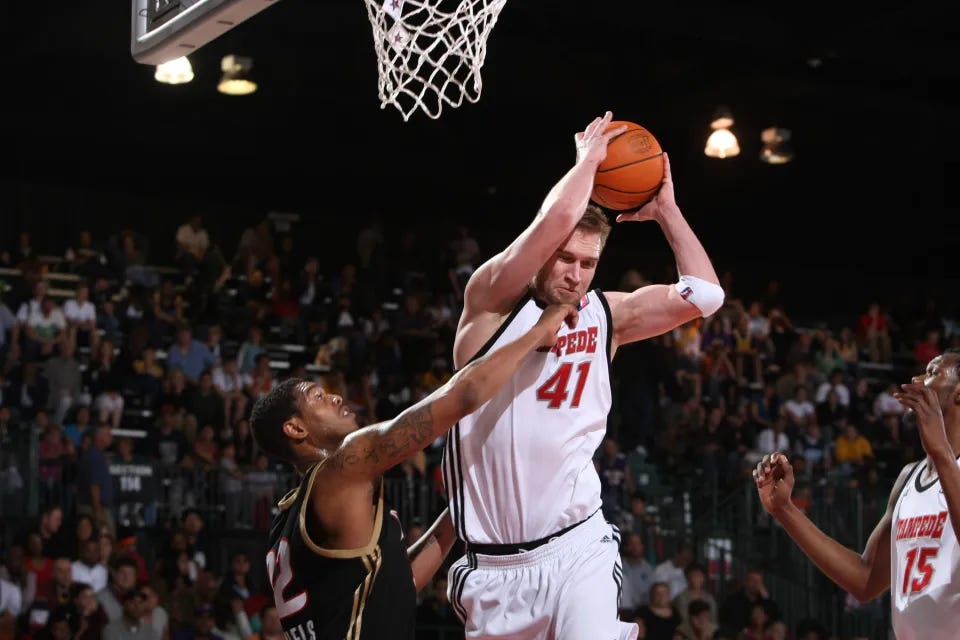I have always been fascinated by people who take the scenic route in life. There’s something refreshing about a person who, despite the world’s best efforts to shove them into a box marked ordinary, refuses to fit. Lance Allred was one of those people. And not just because he was the first legally deaf player in the history of the NBA, but because he survived the NBA at all.
For most, the NBA is a dream lined with silk and stitched with the names of giants. Jordan, Magic, Bird—their stories have been told and retold, mythologized into bedtime stories for aspiring hoopers everywhere. But there’s another layer to professional basketball, one far less glamorous: the guys who don’t stick. The guys whose names are printed in small font, whose jerseys never quite sell, who bounce between leagues like loose change rattling in the depths of the basketball machine.
Lance Allred was one of those names.
Born into a strict Mormon fundamentalist polygamist sect in Montana, Allred’s path to basketball glory was never a straight line. It was more like a winding, half-paved road that occasionally dropped off a cliff. He was 6’11”, which made basketball the obvious choice, but life had other plans. He was 75% deaf, the result of a traumatic birth. He wore hearing aids and relied on lip reading, which, in a sport built around screaming coaches and chaotic locker rooms, was about as easy as trying to read Shakespeare while being hit in the face with a dodgeball.
If basketball players were crafted in a lab, built for speed and endurance and superhuman reflexes, Allred was the glitch in the system. He wasn’t particularly fast. He wasn’t particularly flashy. He played a grounded, methodical game, one built on fundamentals, grit, and an unwavering sense of why the hell not?
After bouncing from the University of Utah to Weber State, he landed undrafted in the murky depths of professional basketball, the place where dreams go to be brutalized. He slogged through the ABA, the NBDL, and the foreign leagues—places where you’re just as likely to be paid in exposure as you are in actual currency. But in 2008, at the age of 27, he got the call.
The Cleveland Cavaliers. The NBA.
Now, when most people picture joining the NBA, they imagine being drafted into an empire, slipping into a freshly pressed jersey, and immediately being knighted by LeBron James. Allred’s reality was a bit more Kafkaesque. He was signed to a 10-day contract. Just 10 days. The kind of contract that says, We like you, but not enough to commit. Maybe it’s us, maybe it’s you. We’ll see.
His moment in the NBA came not with a grand entrance, but with an anxious shuffle onto the court. He played just three games for the Cavaliers, totaling a whopping 18 minutes and scoring a grand total of four points. Four.
And yet, for him, it was monumental.
There was no Hollywood ending here. No Cinderella story. The NBA is ruthless, and if you don’t fit, it spits you out like a bad piece of gum. After his brief stint, Allred drifted back into the underbelly of professional basketball—the overseas leagues, the grind of uncertainty. He retired in 2015, not as a champion, not as a legend, but as something arguably more interesting: a man with a story.
In a way, Allred’s career was more poetic than most. He was a player who had no business making it, and yet he did, even if just for a moment. And maybe that’s enough. Maybe it’s enough to say, I was there, I played, I saw, and I survived.
Because really, isn’t that what life is? A series of strange, imperfect victories that don’t make sense to anyone but ourselves?




